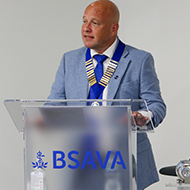Government issues New Year call to microchip pets

Animal welfare minister Zac Goldsmith has highlighted the importance of microchipping to help quickly reunite lost or stolen pets with their owners.
Animal welfare charities and government ministers have issued a New Year call to pet owners to ensure their cats and dogs are microchipped.
In a press release, animal welfare minister Zac Goldsmith highlighted the importance of microchipping to help quickly reunite lost or stolen pets with their owners and to relieve the burden on rehoming centres.
“Microchips are often the only hope of reuniting lost pets with their owners so it truly is the best New Year’s resolution you could make to protect your furry friend in 2020,” he said. “I urge cat owners to microchip their cat and for dog-owners to make sure the details on the chip are up to date.”
His call has been echoed by Dogs Trust veterinary director Paula Boyden, who added: “We see first-hand both the heartbreak that dog owners suffer when they are separated from their pets, as well as the joy of being reunited.
“This is why it is so important that owners keep their details on the microchip database up to date, as required by law. Doing so significantly increases the chances of a lost or stolen dog being reunited with their owner.”
Figures from veterinary charity PDSA show that, since the introduction of compulsory dog microchipping in 2016, 92 per cent of dogs have been microchipped - an increase from 93 per cent in 2015. Furthermore, data published by Dogs Trust reveals there has been a 15 per cent decrease in dogs handled by Local Authorities since microchipping became mandatory.
Currently, Microchipping is not compulsory for cats unless they are travelling under the Pet Travel Scheme. But according to leading feline welfare charity Cats Protection, eight out of 10 strays handed in for adoption in England in 2018 did not have a microchip.
To help tackle cat theft and identify felines injured or killed on the roads, the government is considering the introduction of compulsory cat microchipping. In October 2019, the government launched a call for evidence to understand the consequences of making microchipping of cats compulsory in England.
Ministers are seeking to find out what the effect of mandatory microchipping would be on owners, rescue and rehoming centres and cats. The call for evidence closes at 5pm on 4 January 2020.
Jacqui Cuff, Cats Protection’s head of advocacy and government relations said: “Cats Protection is delighted that the Government has shown its commitment to cat welfare and issued a call for evidence on cat microchipping including the benefits of making microchipping compulsory for cats, as it is for dogs.”



 Julian Hoad has been confirmed as the new president of the British Small Animal Veterinary Association (BSAVA), taking over from Carl Gorman.
Julian Hoad has been confirmed as the new president of the British Small Animal Veterinary Association (BSAVA), taking over from Carl Gorman.